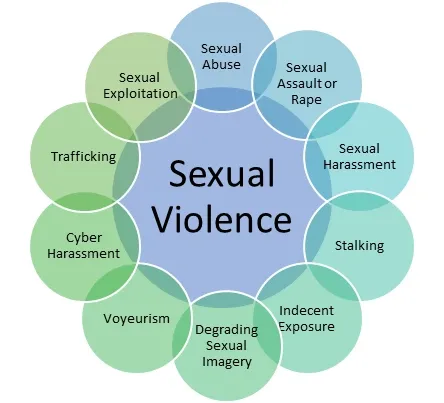Sexual harassment and assault are global issue and a constant concern for women, in particular, as they navigate both public and private spaces. Studies have shown that victims of sexual assault are much more likely to experience depressive episodes on a daily basis and throughout their lifetime compared to those who are not victims. The Mental Impact of Rape demonstrates that rape survivors are 6.2 times more likely to develop PTSD, 3 times more likely to experience a major depressive episode, 13 times more likely to abuse alcohol, and 26 times more likely to abuse drugs
The formal definition of Sexual Assault: Sexual assault is any involuntary sexual act in which a person is coerced or physically forced to engage against their will, or any non-consensual sexual touching of a person. Sexual assault is a form of sexual violence, and it includes rape, groping, forced kissing, child sexual abuse, or the torture of the person in a sexual manner.
Simply put: “An incident that involves sexual contact that is forced on somebody”. For example: “Sexual activity” could be anything from kissing, groping, oral and vaginal rape, and exhibitionism. Victims may be forced into sexual acts through verbal or nonverbal threats, through the use of alcoholic beverages, drugs or even physical violence. being sexually assaulted will change a person forever. It is a sensitive, personal subject, and if a friend has opened up and confided in you about their recent sexual assault, then you must do your best to make them feel safe and stable, and guide them to the right resources for help as needed. Here are just some things to keep in mind.
- Help the victim reach a safe location.
- Listen to what she/he has to say.
- Be a supportive listener and avoid phrases that evoke powerlessness, like “I’m sorry.”
- Tell the victim that this was not her/his fault.
- Take the victim to the nearest clinic or hospital and make sure that they get proper medical attention.
- Keep in touch with the victim and offer help whenever possible/needed.
- Observe the survivor’s emotional and physical status and reach out for help as necessary.
- Take detailed notes regarding the sexual assault if you witnessed it.
- Ensure your friend of Confidentiality, that everything they share with you is safe.
For more information, click here.


